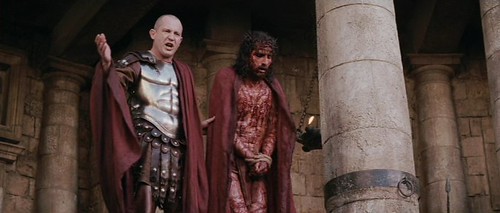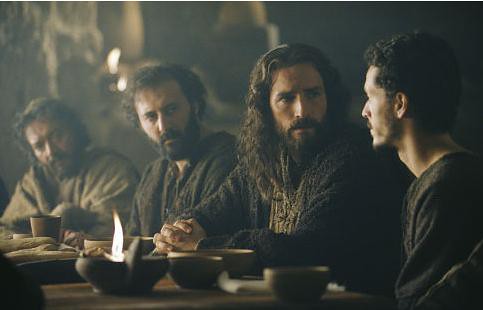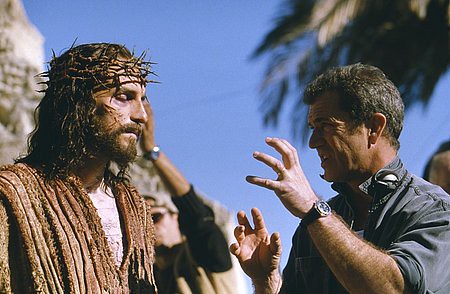Passion Points
My wife loves lists.
Not just any lists, mind you, but particularly ones that boast the “Top” something or other; the “Top 10 Deadliest Animals” on Animal Planet, the “Top 25 videos that defined the 80s” on VH1, or the “Top 10 Worst films of 2004” (remember Catwoman? Halle Berry wishes you didn’t). It hardly matters what it is. if my wife sees the word “Top” followed by a number, she finds it difficult to resist. The countdown to number 1 is addictive. Hence, when Entertainment Weekly detailed the “Top 25 Most Controversial Movies of All Time”, she devoured it voraciously. and promptly showed it to me.
According to Entertainment Weekly (EW) writer Jeff Jensen, movies “are a social experience” and possess “the power to shake, rattle, and roil the world”. I completely agree. He describes these controversial films collectively as “Outrageous. Deplorable. Challenging. And even deeply rewarding.” There were a lot of recognizable and controversial films on the list, after all. but what could possibly have trumped the Triumph of the Will, shot down Natural Born Killers, overcame our Basic Instinct, leeched color from A Clockwork Orange, broke The DaVinci Code, and resisted The Last Temptation of Christ? What else could pummel all of these Hollywood milestones to be King of the hill and stir the pop cultural pot of controversy?

What else. save Jesus dying for our sins? The Passion of the Christ, marked by a bloody and battered image of a cross-carrying savior surrounded by angry Roman soldiers, nabbed a full page of the weekly magazine to be described as the most controversial film “of all time”. Not that “controversy” is the film’s only claim to fame. According to the Internet Movie Database:
- This film had more pre-ticket sales than any other film in history.
- This is the highest-grossing rated R film in US box office history earning $370 million.
- This is the highest grossing foreign language film and/or subtitled film in US box office history.
- It is also the highest grossing religious film in worldwide box office of all time.
- Because of their experiences during film production, many of the cast and filming crew converted to Catholicism after the completion of the film. Among those who converted was an atheist who played Judas Iscariot.
According to EW, Mel Gibson’s “unflinching depiction of Christ’s suffering” created a “culture-war firestorm unrivaled in Hollywood history.” While it’s true that a number of social and political factors contributed to the hullabaloo, I believe there is something much deeper at work here.
First of all, many of the films that made the list depict man at his worst. Whether it’s rape in A Clockwork Orange, theft and murder in Bonnie and Clyde, fornication in Last Tango in Paris, torture in The Deer Hunter, political corruption in Fahrenheit 9/11, social and sexual dysfunction in Kids, racism in Do the Right Thing, assassination in JFK, or “civilized” modern man reduced to tribalism in The Warriors, most of the films illustrate man’s innate depravity whether they use this language to describe it or not. While I cannot endorse the viewing of all the films on EW’s list, I am not opposed to films that illustrate our wickedness. Indeed, a cinematic depiction of the book of Judges would be NC-17 at best; our Bible gives details one might expect in a Lucio Fulci film or a Clive Barker novel. These films provide fertile ground for conversation about human nature that inadvertently corresponds with a biblical worldview. They do well at illustrating the problem that we are not righteous, and even implicitly that we need some kind of savior because we can’t fix ourselves.

Some films on the list do demonstrate courage and valor, such as United 93, which recreated the events of the doomed 9/11 flight. Still, even the plot synopsis describes the narrative as “tragic heroism” that offers little comfort and lacks any lasting resolution to a very real, current tension in the world today.
The opening of The Passion of the Christ quotes from Isaiah, reminding the viewer Jesus was “pierced for our transgressions. crushed for our iniquities. and by his wounds we are healed.” Going one step further than these other contentious films, The Passion not only illustrates the brutal depravity of man, but what every evil act and thought has wrought sin and wickedness, past and present, poured out on God incarnate. Rather than demonstrating man at his worst, it shows what our worst has cost, positions us at odds with Almighty God, and pinpoints our only hope of redemption. Ultimately, “controversial” is too small a word.
Jesus’ teaching and declaration of not only being the exclusive way of reconciliation to God, but of being God Himself, raised controversy to such a level that people shouted and vied for his murder. The apostle Paul reminds us of this controversy in his first letter to the Corinthians, stating that Christians “preach Christ crucified: a stumbling block to Jews and foolishness to Gentiles”. There is invariably a visceral reaction to Christ’s atoning sacrifice, as Paul elaborates that “the message of the cross is foolishness to those who are perishing, but to us who are being saved it is the power of God. For it is written: “I will destroy the wisdom of the wise; the intelligence of the intelligent I will frustrate.'”

In hindsight, it’s no shock to me that a film seeking a biblical depiction of what Jesus endured because of our sin evokes anger, dismissive ridicule, frustration, and concurrently engendered praise and acclamation. Art reflects life, and it’s satisfying on many levels that this film has been labeled as the hallmark of cinematic controversy; what Jesus accomplished on the cross is the greatest point of controversy to all mankind, whether they want to admit it or not.

